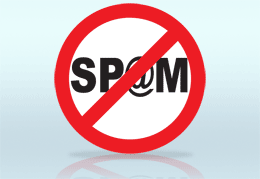10 things you need to know about Canada's new Anti-Spam Legislation

Guest Commentary
By Andrew Muir
1. Canada’s new Anti-Spam Legislation (CASL) will prevent “spammers” from emailing, texting, or contacting you through social media such as Facebook, Twitter, etc. unless you have given expressed or implied consent. CASL takes effect July 1st, 2014.
2. There are three general requirements for sending a commercial electronic messages (CEM); expressed or implied consent, identification of sender and, a simple unsubscribe mechanism.
3. As a transition provision, existing email recipients are assumed to have a business or non-business relationship and continued consent is implied for three years starting from July 1, 2014 or until they unsubscribe.
4. A CEM must clearly identify the name of the sender and the business or organization he represents. This can be done through a hyperlink to a company webpage. A contact address and phone number must be included.
5. Express consent is the new standard requiring the end-user to take a positive action to give consent. New email recipients must now give “expressed” consent by; opt-in via a website, orally, written (mail or fax), or by hard copy advertisement before any CEM can be sent.
6. Implied consent is only derived from an existing business relationship, which ends two years after the business deal has ended. The business must be able to prove the deal and track the timing.
Implied consent also applies to recipient’s names that have been obtained by referral, business card, members of an association, club, or voluntary organization to which the sender belongs.
7. The burden is on the sender of the CEM to prove that consent (either expressed or implied) was obtained from the recipient. A record of proof must include how, when, and why consent was obtained.
8. The legislation applies to any message sent from, or accessed by, a computer in Canada. Canadian regulators will share information with their counterparts in other jurisdictions about illegal activity.
9. The penalties for each violation can be up to $1-million for an individual and up to $10-million for companies. Directors, officers, agents, and mandataries of a corporation can be held liable.
10. The law will be enforced by three government agencies: the Canadian Radio-Television and Telecommunications Commission (CRTC), the office of the privacy commissioner, and the Competition Bureau. As of July 1, 2017, there will also be a private right of action, which means people can start taking legal action against anyone not ollowing the rules; ie class-action lawsuits.
As much as this law should deliver increased productivity it will inevitably have a huge effect on how all business communicates and the potential clients it can attract.
The burden of proof ultimately lies with the sender resulting in bureaucracy, time, and effort to protect themselves. Companies will need to invest in databases and email systems that can track IP and physical addresses of the recipients. How will public companies keep in touch with existing shareholders? They first need to send an opt-in email to all existing investors that are currently on their regular email list. Unfortunately, it is estimated that up to 60% of small businesses are unprepared for CASL to come into effect and have not even started to send out opt-in emails.
Tommy Humphreys, Founder of the business information service called CEO.ca, was surprised that he only received a 15% opt-in from his email list. He predicts a disappointing opt-in rate for most resource companies and stock promoters. He believes the purge is necessary, “I would rather have five hundred receptive email contacts than one million who can’t remember where the email is coming from.”
To reach out to new investors, companies will have to mass market themselves. Vancouver based Market One Media places business-related editorial and video content on authoritative media channels that drive investors to company websites. Market One Media’s CEO, Farhan Lalani, comments that, “The era of spamming for dollars is done. The problem is that these email lists have been worked over for so long that the content being provided to the reader is no longer a quality investment opportunity but rather a spam driven distribution system with no regard for the best interests of the end reader or investor.”
CASL may inadvertently cause customers a missed opportunity due to a business’ fear of litigation.
Intrusive phone calls from offshore call centres may increase, asking you to sign up for email promotions. Change is inevitable as businesses and marketing firms will adapt to the new Anti-Spam Legislation. Who knows, with less spam to sift through we may just find the time needed to innovate.
Andrew Muir holds a B.Sc.in Geology from the University of British Columbia and the Chartered Financial Analysts (CFA) designation . Muir has spent over 25 years working for full service investment dealers in Vancouver.
Leave a comment






